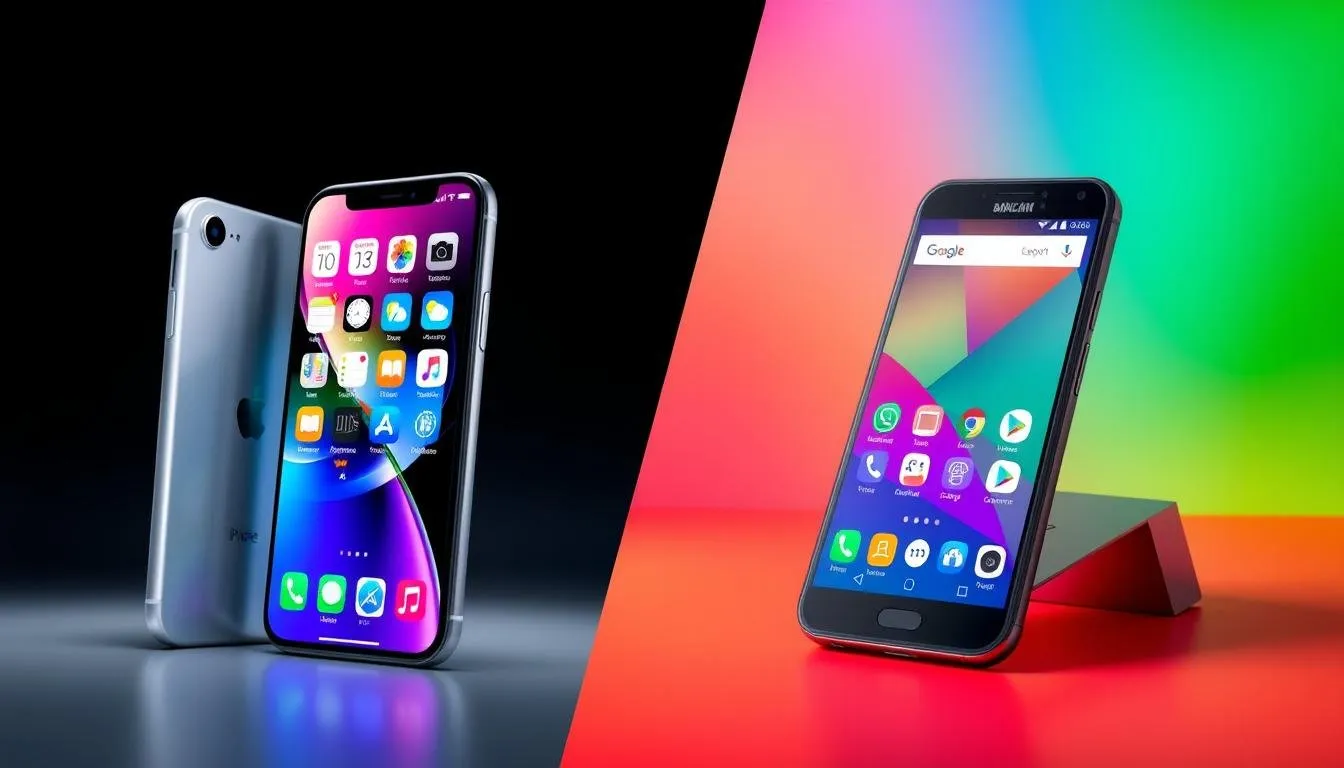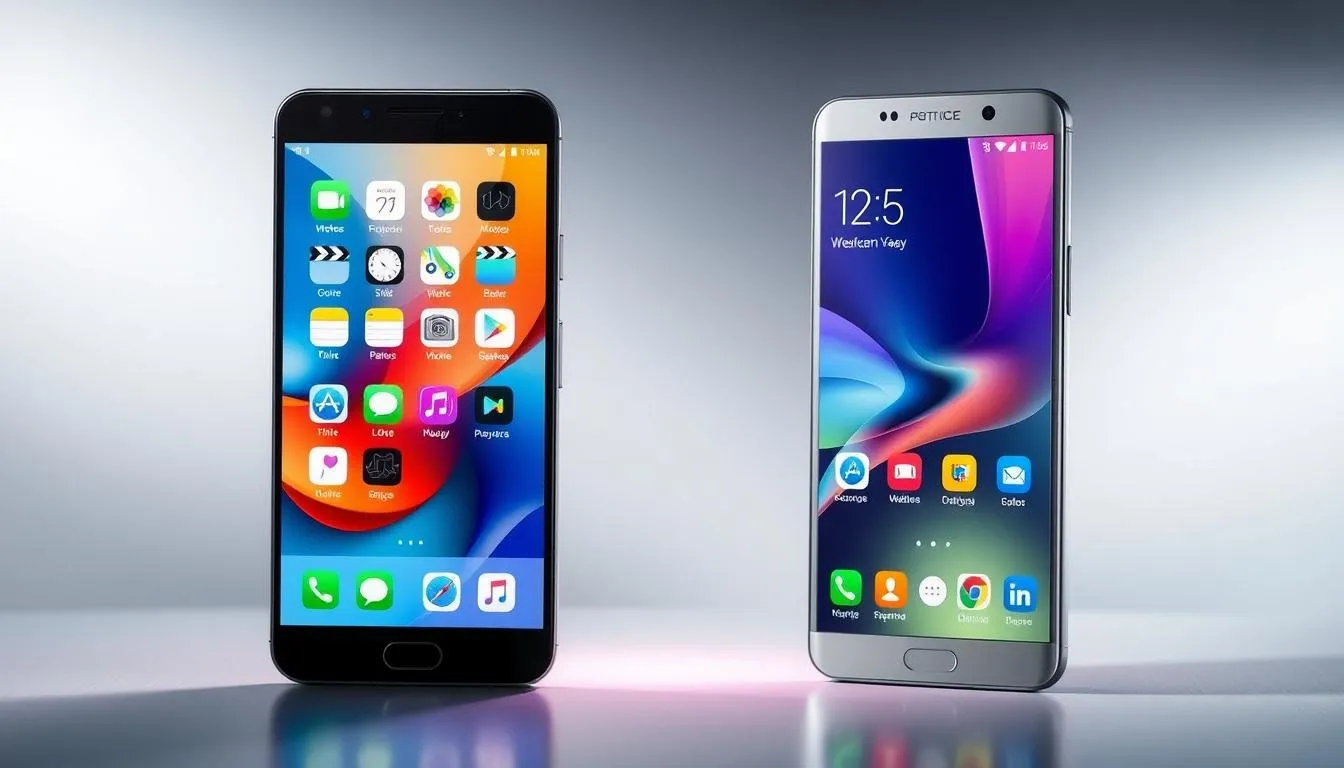But how do they compare in terms of features and hardware?
The choice of smartphone often comes down to only two players: Apple and Google. Running millions of devices around the globe, both services have unique offerings for different styles of users. In this article, we compare iOS and Android in detail, their features, hardware and advantages so that you can make an informed decision.
Overview of iOS and Android
iOS
iOS is a closed-source OS developed by Apple that runs only on Apple devices including iPhone and iPad. iOS is known for its sleek design, intuitive interface, and seamless integration with the Apple ecosystem, making it a great choice for users who value simplicity and reliability.
Android
Android, which is owned by Google, is an open-source OS that is used by various manufacturers such as Samsung, Google Pixel, OnePlus, and Xiaomi. It’s known for its customization features, versatility, and support for a wide variety of devices at all budget levels.
Key Features Comparison
User Interface (UI) and Design
iOS:
Android:
Synchronize design across every device
Ease and friendly for any professional.
All about aesthetics with sleek animations and many polished icons.
Custom Theme, Widget, Layout, and UI modification
Each manufacturer has its own interface (e.g., Samsung’s One UI, Xiaomi’s MIUI).
Provides additional control over the aesthetics and functionality of the interface.
Verdict: For consistency, iOS takes the throne, while Android’s flexibility caters to the customization enthusiasts.
App Ecosystem and Store
iOS:
- Restrictions in the App Store prevent junk and low quality apps.
- Increased speed of updates and improved optimization for Apple devices.
- Limited side loading options.

Android:
- Android is available from a wider variety of manufacturers.
- It supports sideloading and installing apps from other sources.
- Not all apps seen to be well-optimized for certain devices.
- Final call: If you want the best apps, choose iOS; for overall app variety and flexibility, choose Android.
- Hardware Integration
iOS:
- And Apple designs hardware and software, which always fit like a glove.
- Top tier build quality with glass and aluminum build.
- A few devices but buttoned up performance.
Android:
- However, hardware is very manufacturer-specific.
- Facilitates advanced technologies such as folding displays and sophisticated camera arrays
- Note: performance is inconsistent depending on your device.
- Winner: Better integration on iOS and more hardware options & innovation from Android.
- So in the end, customization and personalization
iOS:
- Lack of customizability features.
- Emphasis is on simplicity and ease of use.
- Widgets and themes are there, but they are less flexible than Android.
Android:
- Is highly customizable, with widgets, themes and launchers.
- Permits users to modify virtually every element of the user interface.
- More options for power users.
- Verdict: For the personalization lover, Android gets the clear win.
- Performance and Optimization
iOS:
- High optimization for Apple’s hardware, therefore results in a smooth and stable experience
- Little RAM (compared to Android devices) but still efficient resource usage.
- Software updates keep it alive and kicking.
Android:
- The performance depends on the manufacturer and the device.
- Performance: [Most] high-end Android phones match or beat iPhone.
- Fragmentation can lead to delayed software updates.
- Winner: Android flagships are not far behind but better iOS performance for the most part
- Battery Life and Charging

iOS:
- An identifier for this use case may be: Efficient battery usage through hardware-software optimization
- Not as fast charging support as some of the Android devices.
- Proprietary Lightning cable.
Android:
- Learn more about battery capacities and charging speeds.
- Supports USB-C, a universal standard to offer quicker charging and data transfer.
- Extended battery life on many premium models.
- Outcome: My money’s on Android for more charging options, and phones with a variety of battery sizes.
- Security and Privacy
iOS:
- Intense emphasis on protection of privacy towards App Tracking Transparency.
- Security updates all the time, low risks of viruses.
- More secure, but less customizable.
Android:
- Security depends on the manufacturer and model.
- Substantially more susceptible to malware because of sideloading and third-party app stores.
- Google worked on some privacy features for recent updates.
- VERDICT: iOS is more secure, but Android has made strides.
- Ecosystem and Compatibility
iOS:
- Integration with Apple devices such as MacBooks, iPads, and Apple Watch.
- AirDrop, Handoff, and Continuity functions elevate the ecosystem experience.
Android:
- Works seamlessly with Google services and other devices.
- Works with a variety of smart home devices.
- No single unified ecosystem.
Verdict: iOS wins for ecosystem integration; Android’s versatility fits varied setups.
Pros and Cons of iOS and Android
Pros of iOS:
Cons of iOS:
- Hardware-software integration that just works
- Frequent, timely updates of your software.
- “Increased security and privacy features.
- High resale value.
- Reliable customer support.
- Fewer customization possibilities.
- Expensive devices.
- App installation methods are limited.
Pros of Android:
Cons of Android:
- Inspection: Extensive customization and personalization.
- Available on a variety of devices, price points.
- Never seen before machines, such as foldable displays.
- Universal USB-C charging.
- Irregular software updates.
- Fragmentation in performance.
- Higher risk of malware.
Which is Right for You?
Choose iOS if:
You like a straightforward, congruent end-user experience.
You prefer confidentiality and protection.
You are all in on the Apple ecosystem.
Choose Android if:
You want a device that you can scale.
You require a greater diversity of hardware choices.
You want to see the different offerings available at various price points.
Conclusion
It is up to the aspect you prefer, it depends on iOS or android, my opinion is to go with your preferences. Ecosystem integration, security, and consistent performance — iOS reigns supreme and is better suited for those who value simplicity and reliability above everything else. In stark contrast, Android caters to a different type of user, the kind that desires extreme customization, a plethora of hardware options, and low prices.
iOS vs Android: which one is for youBoth iOS and Android have matured immensely, offering dozens of powerful and flexible smartphones for whatever lifestyle you have. Know your priorities and choose the one that suits your needs the best.

